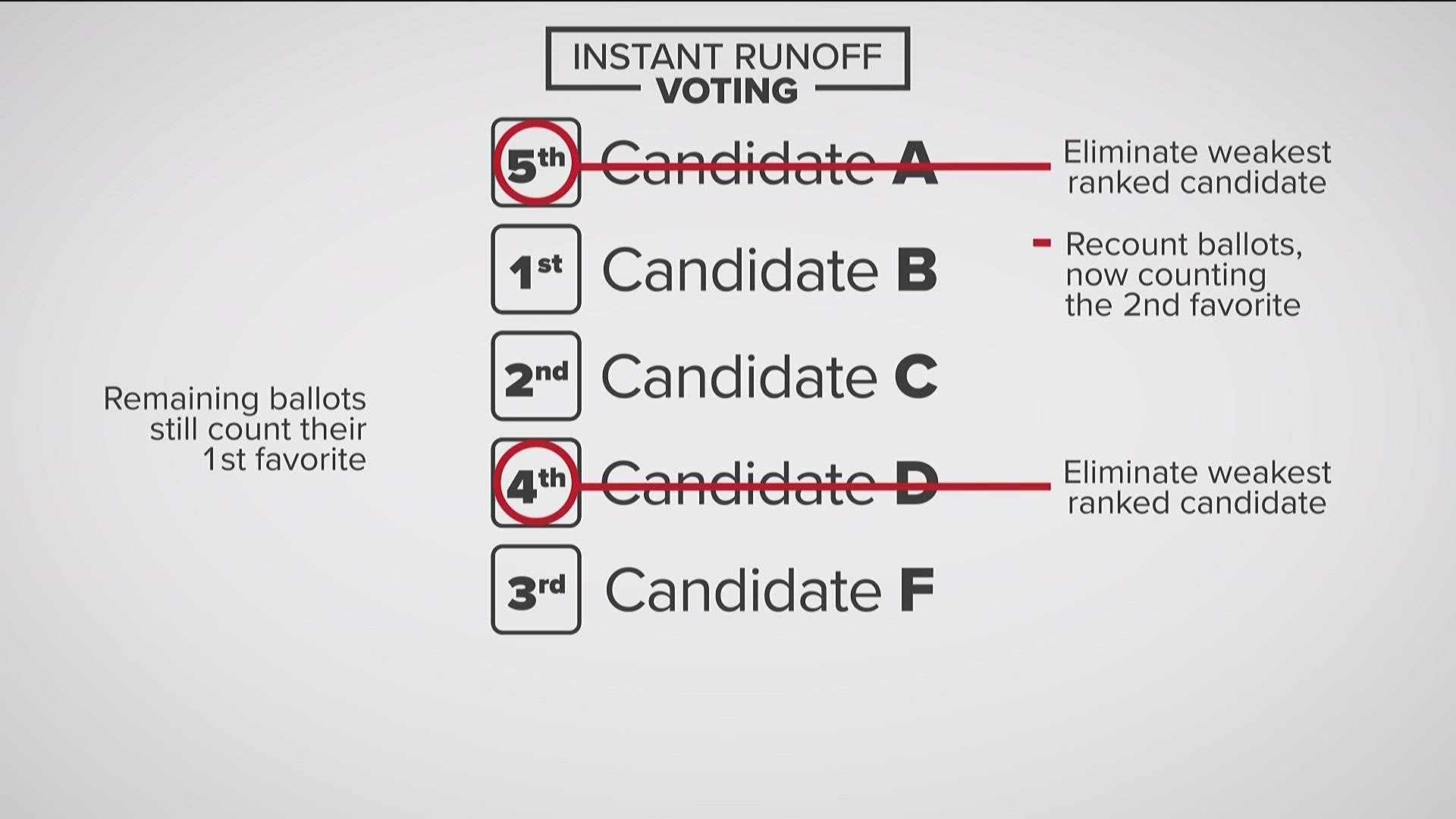ATLANTA — Georgia Lt. Gov. Burt Jones announced legislation on Tuesday that would ban ranked-choice voting in the Peach State.
Lt. Gov. Jones issued a release with state Sen. Randy Robertson (R -- Cataula) announcing the introduction of S.B. 355, which would enact the ban. Georgia does not currently utilize ranked-choice voting, but it has been highlighted previously by Sec. of State Brad Raffensperger as one option for moving away from the state's runoff election system.
Currently, in Georgia, if no candidate for office receives a majority of 50% + 1 vote, the top two vote-getters go head-to-head in a later election. This is how both of Georgia's U.S. Senate races went to a runoff in 2022. Raffensperger also went into a runoff to win his first secretary-of-state election in 2018.
Under ranked-choice voting, voters rank the candidates by first, second, and third choice -- essentially casting their runoff vote ahead of time and allowing for an "instant runoff."
The lieutenant governor, in his release, argued that ranked-choice voting is "designed to cause confusion and fatigue among voters."
“This type of voting system, pushed by dark money groups, could cause a drastic increase in the number of ballots being thrown out, disenfranchising Georgia voters," Jones said. "Georgians deserve to have the utmost faith in their elections, and those pushing Ranked-choice voting are only hindering that faith. I am proud to ban this electoral disaster and work to make Georgia’s elections the safest in the nation.”
Some politicians and activists have argued that ranked-choice voting allows for more candidates outside the Republican and Democratic parties to have a better chance on the ballot. Libertarian Chase Oliver, who ran for Senate in Georgia in 2022 and is running for that party's presidential nomination this year, told 11Alive in 2022 that adopting ranked-choice voting would "show that we want our democracy to be responsive."
"That we want more choices and more voices for the voters, and also save the taxpayers time and money - and I say we should get it done," Oliver said at that time.
Raffensperger, during the two 2022 Senate runoffs, said Georgia was "one of the only states in the country with a General Election Runoff" and "also one of the only states that always seems to have a runoff" as he called for an end to the system.
“No one wants to be dealing with politics in the middle of their family holiday,” he said then, noting how runoffs fall in December following November general election voting.

